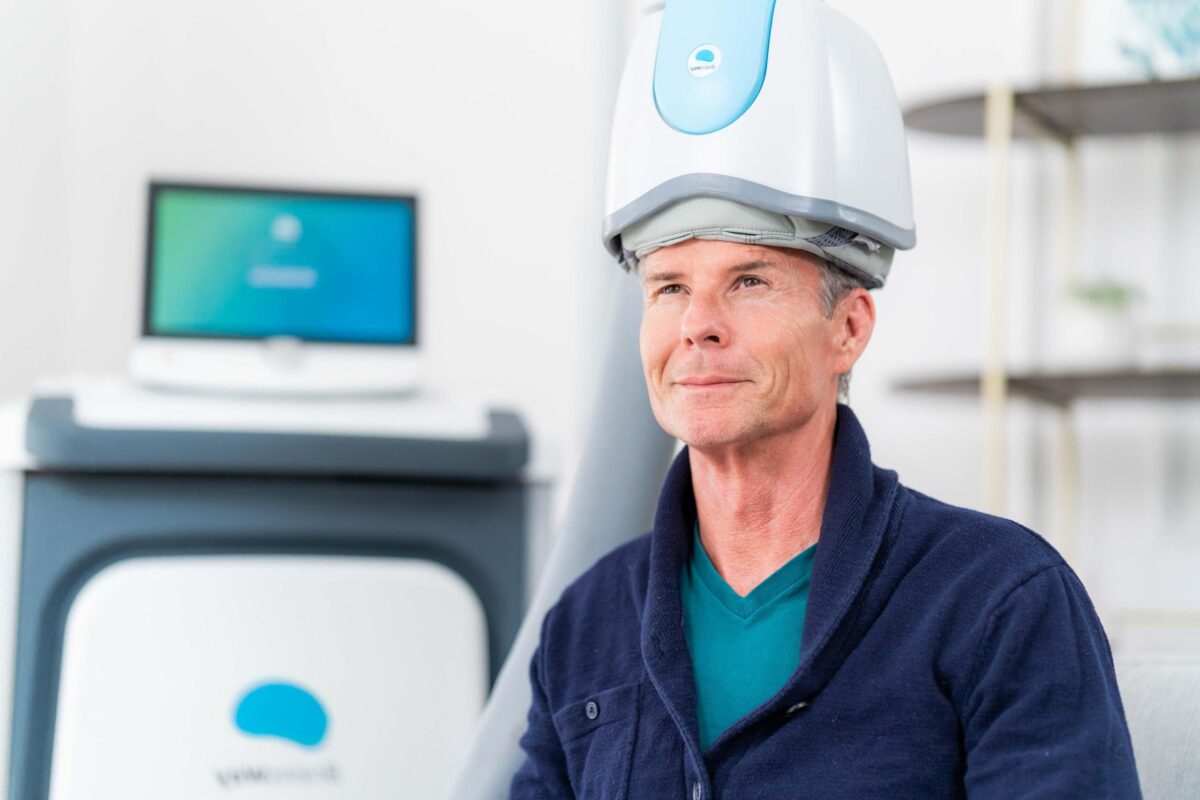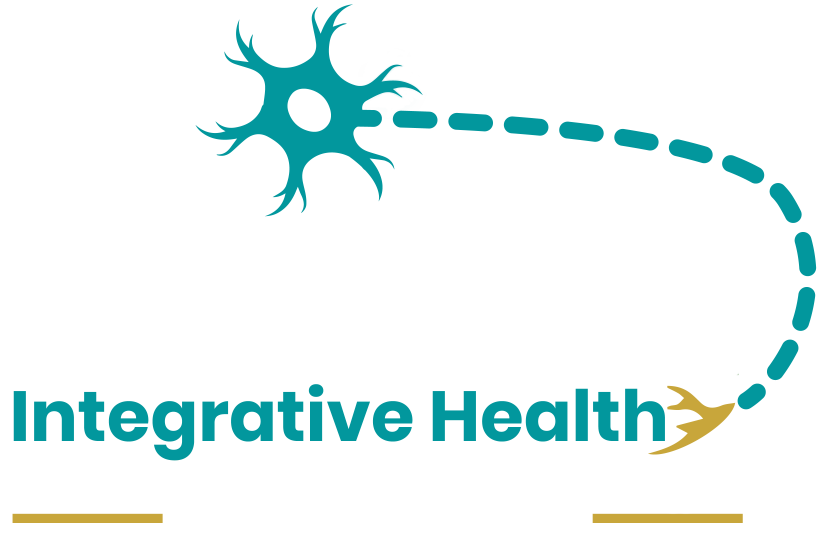In the realm of neurological health, the pursuit of innovative treatments continues to drive research and therapeutic advancements. One such intriguing player in this field is Cerebrolysin, a neurotrophic peptide mixture derived from porcine brain tissue. This blog aims to explore what Cerebrolysin is, its potential benefits, and the neurological conditions it has been studied for.
Cerebrolysin in Denver: Enhance Brain Performance and Recovery from Stroke, SCI, MS, Parkinsons, Dementia, TBI, Concussion and much more at Axon Integrative Health
Benefits:
Neuroprotection:
Research suggests that Cerebrolysin may exert neuroprotective effects, guarding against damage to brain cells. This characteristic has led to investigations into its potential role in conditions involving neurodegeneration. Cerebrolysin contains neurotrophic factors that help repair damaged neurons, recovering function that was once lost.
Enhanced Cognitive Function:
Cerebrolysin has piqued interest for its potential to improve cognitive function. Studies have explored its impact on memory, attention, and overall cognitive performance, particularly in conditions like Alzheimer’s disease and other forms of Dementia like Vascular Dementia and Lewy Body Dementia.
Enhanced Blood Flow:
Cerebrolysin helps repair damaged blood vessels. In the brain, damaged micro-vasculature is the root of most neurological injuries and conditions. Cerebrolysin helps restore proper blood flow to these areas, supporting the healing process and returning function to the area.
Stroke Recovery:
In the aftermath of a stroke, the brain’s ability to recover is crucial. Cerebrolysin has been investigated for its role in supporting neurological recovery post-stroke, potentially aiding in rehabilitation and functional improvement.
Traumatic Brain Injury (TBI):
The neurotrophic properties of Cerebrolysin have prompted studies in the context of traumatic brain injury. Preliminary research suggests potential benefits in mitigating the consequences of brain trauma.
The clinical applications of Cerebrolysin are profound and diverse. As a peptide preparation
with neurotrophic and neuroprotective capabilities, Cerebrolysin’s impact on combating the rising
prevalence of neurodegenerative diseases is an exciting development in the medical field.
Dementia due to Alzheimer’s and vascular ischemia, Parkinson’s disease, peripheral
neuropathy, Multiple sclerosis, and traumatic brain injury are all diseases with devastating
physiological consequences and Cerebrolysin may be key in their treatment and prevention.
The natural repair and recovery processes in the CNS start immediately upon injury and play an important role in the continuous defense against neurodegeneration in chronic CNS disorders (e.g. Alzheimer’s disease). Cerebrolysin has shown to modify two major signalling pathways: the neurotrophic factor (NTF) and sonic hedgehog (Shh) signalling pathway. These pathways regulate on a molecular level the cellular processes of neurogenesis, angiogenesis, dendrite arborisation, axonal sprouting, myelination, and integrity of the neurovascular unit, thereby supporting the maintenance and repair of the neuronal network.
The pathological events and cascades after stroke or trauma lead to secondary injuries, which further compromise motor and cognitive functions of a patient. Among the most relevant molecular processes targeted by Cerebrolysin in the acute phase of an injury are events of the ischemic cascade, like Excitotoxicity; Uncontrolled apoptosis; Overactivation of proteolytic enzymes; Overproduction of reactive oxygen species (ROS).
In the early post-acute phase, Cerebrolysin prevents formation of toxic protein aggregates and lowers the level of inflammatory processes, both linked to neurodegeneration if not prohibited.
Overview: Description and Mechanism of Action
Cerebrolysin is a low molecular weight, porcine-derived peptide preparation with free amino acids that has a variety of clinical applications due its neuroprotective and neurotrophic
properties. The preparation includes active peptide fragments include nerve growth factor,
BDNF, Ciliary Nerve Growth Factor, P-21, enkephalins and orexin.
Cerebrolysin has pharmacodynamic neurotrophic and neuroprotective activity that mimics endogenous neurotrophic factors.
Neurotrophic factors are molecules that are responsible for growing, maintaining and repairing of neurons. They also have neuroprotective properties which strengthen neural pathways and the integrity of the neurons themselves. They are also responsible for promoting synaptic plasticity, which is a way the brain strengthens certain neural pathways. In situations where the brain needs to utilize neurotrophic factors to repair damaged neurons, such as in the case of neurological disease, Cerebrolysin can be administered to act as an analogue to endogenous neurotrophic factors. Studies have shown that the use of Cerebrolysin as treatment of neurodegenerative disease has often proved effective as a means of symptomatic treatment as well as pathological suppression in both the short and long term.
Additionally, due to its neuroprotective properties, Cerebrolysin has been shown to have
preventative potential for individuals who have genetic predisposition to developing
Alzheimer’s disease. While Cerebrolysin is not FDA approved in the United States, it is approved in many European and Asian countries for stroke, dementia and traumatic brain injury.
Despite its wide range of application, the exact mechanism in which Cerebrolysin uses to promote neurogenic and neuroprotective activity is not completely known. The peptides of
Cerebrolysin may interact with receptors of inhibitory modulators in the brain, including
adenosine A1 and GABAb. Cerebrolysin appears to have immunomodulatory effects that may
attenuate inflammatory mechanisms associated with neurodegenerative disease. Studies have
shown that Cerebrolysin reduces microglial expression and lipopolysaccharide (LPS)-induced
interleukin-1β release. The low molecular weight of the peptide preparation allows it to easily
cross the blood-brain barrier, which makes intravenous injection the best method of
administration to achieve pharmacologically significant levels of blood concentration. A study
using rats was performed to examine entrance of Cerebrolysin components in to CNS tissue and found that mean tissue concentrations of Cerebrolysin across various regions of the brain were 170-237 ng per gram of tissue. When used to treat symptoms of Alzheimer’s disease,
Cerebrolysin has the effect of reducing phosphorylation of amyloid precursor protein (APP) and
the amyloid-beta peptide by modulation of kinase proteins. The effect on APP suggests that
Cerebrolysin’s therapeutic effect on Alzheimer’s is associated with management of of APP’s
proteolytic product amyloid-β peptide. Additionally, Cerebrolysin mimics the effect of nerve
growth factors (NGF) and therefore displays similar activity on dorsal root ganglia. NGF plays an
important role in the survival of cholinergic neurons. Consequently, it is suggested that
Cerebrolysin’s ability to mimic NGF can help stabilize and prevent further development of AD
via its neuroprotective effect on cholinergic neurons.1 It was also found that Cerebrolysin
increased the expression of the blood-brain barrier GLUT1 glucose transporter in the brains of
young and old rats and in vitro via messenger RNA stabilization. This mechanism suggests the
cognitive improvements associated with Cerebrolysin may be a result of increased glucose
transport to the brain via the GLUT1 transporter.2
1 Alvarez; et al. A 24-week, double-blind, placebo-controlled study of three dosages of Cerebrolysin in patients with
mild to moderate Alheimer’s disease. European Journal of Neurobiology 2008; 13: 43-54 2 Boado, R; Brain-derived peptides increase the expression of a blood-brain barrier GLUT1 glucose transporter
reporter gene. Neuroscience Letters, Dec 1996, Vol. 220(1), 53-56.
Cerebrolysin Constituents:
Nerve Growth Factor: An important protein for development and maintenance of neurons, specifically neurons involved in pain, temperature and touch sensation. Nerve growth factor functions by binding to either the NTRK1 receptor or the p75NTR receptor which are both found on the surface of sensory neurons.
Brain-Derived Neurotrophic Factor (BDNF): Protein found in the brain and spinal cord that is responsible for growth, maturation and maintenance of neurons. In the brain, BDNF is active in the synapse and is important in regulating synaptic plasticity.
Ciliary Neurotrophic Factor (CNTF): A brain derived protein that promotes neuron survival and axonal outgrowth during neuronal development.
Enkephalins: Functions as a ligand for the kappa-type opioid receptor. Competes with and mimics effects of opiate drugs and therefore plays a role in pain perception and response to stress.
Orexin: Functions as a ligand which binds to orphan G-protein coupled receptors that play a role in regulation of sleep and arousal as well as feeding behavior, metabolism and homeostasis.
P21: The pentamer Ac-DGGLAG-NH2 is a peptide fragment of Cerebrolysin that has been found to play a role in neurogenesis and neuronal plasticity.
In the ever-expanding frontier of neurological health, Cerebrolysin has shown to be a beacon of promise, offering a unique blend of neurotrophic peptides. The exploration into the potential benefits of Cerebrolysin spans a spectrum of neurological conditions, from Alzheimer’s disease to stroke recovery and traumatic brain injury and much more in between. As the scientific community continues to unravel the intricacies of this neuroactive substance, the future holds exciting prospects for its application in enhancing cognitive function and neurological recovery.
At Axon Integrative Health in Denver, we stand at the forefront of revolutionary treatments. Our commitment to advancing neurological care is exemplified by the integration of Cerebrolysin into our comprehensive functional neurological rehabilitation program. Denver, a hub of innovation and health-conscious living, becomes the backdrop for a transformative approach to neurological wellness.
Why Axon?
Axon Integrative Health, situated in the heart of Denver, embraces the cutting edge of neurological care. Our multidisciplinary team combines expertise in functional neurology, rehabilitation, chiropractic care, applied psychology, and functional medicine to provide a holistic approach to neurological health. At Axon, we understand that each individual’s journey is unique, and our personalized approach ensures that our patients receive the care they deserve.
Revolutionizing Care: Cerebrolysin at Axon
As part of our commitment to pioneering therapies, Axon Integrative Health proudly incorporates Cerebrolysin into our treatment protocols. This neurotrophic peptide mixture aligns seamlessly with our mission to optimize neurological function and enhance the quality of life for our patients and performance athletes.
Innovative Therapies, Comprehensive Care
Our approach extends beyond conventional medical paradigms. By combining Cerebrolysin with our functional neurological rehabilitation program, we create a synergistic environment that fosters neural repair and recovery. This comprehensive approach considers not only the immediate effects of Cerebrolysin but also how it complements and enhances the benefits of our rehabilitation strategies by upregulating NMDA receptors and BDNF (brain-derived-neurotrophic-factor).
Navigating the Future of Neurological Health
As the scientific community continues to unravel the potential of Cerebrolysin, Axon Integrative Health remains dedicated to staying at the forefront of advancements. Our commitment to providing revolutionary treatments in the heart of Denver reflects our belief in the transformative power of integrating innovative therapies into personalized care plans.
The journey into the world of neurological health is dynamic and ever-evolving, and Axon Integrative Health invites you to be part of this transformative experience. If you’re seeking a pioneering approach to neurological care, we’re here to guide you on your path to optimized brain health. Together, let’s explore the possibilities and unlock the full potential of your neurological well-being.
See you there!







